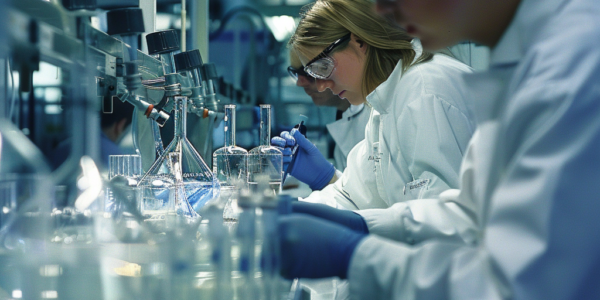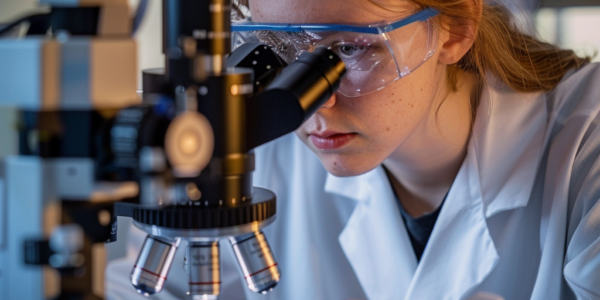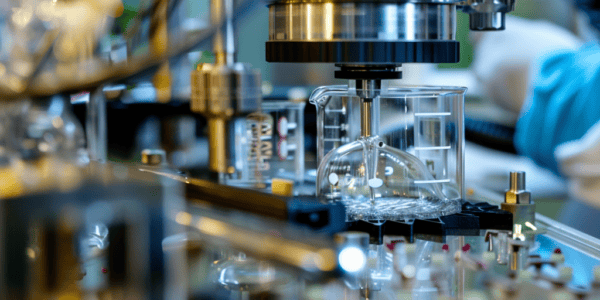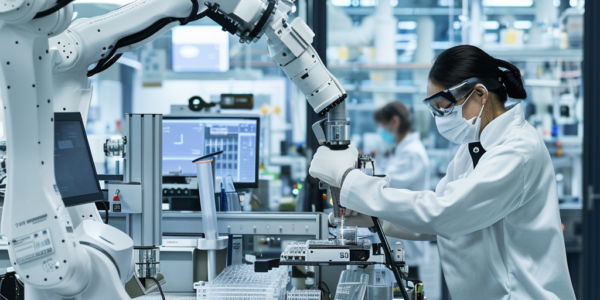New Strategy for Assessing Applicability of Chemical Reactions Developed by University of Münster Chemists
Chemists at the University of Münster have developed a computer-aided, bias-free method for selecting model substrates to evaluate new chemical reactions, aiming to improve the quality and information content of chemical reaction data and close knowledge gaps. The method is based on the complexity and structural properties of real pharmaceutical compounds, with the goal of lowering the barriers to the application of new reactions in both academic and industrial contexts. The work, published in the journal ACS Central Science, aims to initiate a ‘rethinking process’ in the evaluation of chemical reactions and represents an important step towards standardizing and objectifying the development and evaluation of chemical reactions.
Groundbreaking Discovery in Carbon Capture Technology
Scientists have made a groundbreaking discovery in the field of carbon capture, offering new hope in the fight against climate change. A familiar solvent has been found to hold the potential to capture twice as much carbon dioxide (CO2) as previously believed, opening the door to the development of carbon-based materials that could play a crucial role in reducing CO2 emissions. This unexpected finding has the potential to revolutionize carbon capture technology, offering a more efficient and cost-effective solution for reducing CO2 emissions.
Groundbreaking Discovery: New Ruthenium Catalyst Revolutionizes Chemistry
The University of Manchester scientists have developed a groundbreaking ruthenium catalyst with the potential to revolutionize optimization processes in various industries. This stable catalyst eliminates the need for specialized equipment, promotes environmentally friendly practices, and holds promise for the future of industrial processes and scientific exploration.
NUS Researchers Make Groundbreaking Discovery in Creating Carbon-Based Quantum Materials
Researchers at the National University of Singapore (NUS) have developed an innovative method for creating carbon-based quantum materials atom by atom using a combination of scanning probe microscopy and advanced deep neural networks. This groundbreaking approach demonstrates the potential for artificial intelligence (AI) to revolutionize atomic manufacturing and quantum material research, with significant promise for both basic science and potential future applications. The development of open-shell magnetic nanographenes is particularly significant, crucial for the development of high-speed electronic devices at the molecular level and the creation of quantum bits, the building blocks of quantum computers.
Scientists Discover Unconventional Superconductor in Nature
Scientists have identified the world’s first ‘unconventional’ superconductor, miassite, found in nature. This groundbreaking discovery could revolutionize various industries and pave the way for technological advancements in the near future.
Groundbreaking Discovery in Nanotechnology: New Method Enables Synthesis of Hundreds of 2D Materials
Researchers at Linköping University in Sweden have developed a new method for synthesizing hundreds of new 2D materials with unique properties, opening up possibilities for applications in energy storage, catalysis, and water purification. This groundbreaking research has been published in the prestigious journal Science, marking a significant advancement in the field of nanotechnology.
The Search for the Origin of Life on Earth
The search for the origin of life on Earth has captivated scientists for years. With various theories and hypotheses, researchers are exploring how life could have emerged on a hot and rocky planet like Earth. One popular theory involves the early Earth’s atmosphere, dominated by nitrogen and methane, which could efficiently produce organic compounds. The famous Miller-Urey experiment simulated these conditions and yielded astonishing results, suggesting that lightning, asteroid impacts, and ultraviolet radiation from the Sun could have combined to create the necessary chemicals for life.
Researchers Develop Energy-Efficient Strategy for Ethylene Synthesis via CO2 Reduction
Researchers at Université Montpellier and other institutes have developed a new strategy to facilitate the energy-efficient synthesis of ethylene via the reduction of carbon dioxide. Their approach involves functionalizing copper catalysts for CO2 reduction using aryl diazonium salts, aiming to address the modest selectivity for ethylene and improve energy efficiency. This breakthrough is expected to have significant implications for the energy industry and environmental sustainability.
AI Accelerates Discovery of Platinum-Free Electrolyzer Materials for Green Hydrogen Production
Discover the groundbreaking AI technique developed by a research team at the National Institute for Materials Science to accelerate the identification of materials for green hydrogen production. This revolutionary approach targets high-performance water electrolyzer electrode materials free of platinum-group elements, offering promising implications for the future of green hydrogen production.
Revolutionizing Catalyst Development with AI and Automated Lab Infrastructure
Artificial intelligence and automated laboratory infrastructure are revolutionizing the development of new chemical catalysts. Researchers at ETH Zurich have utilized these tools to efficiently synthesize the energy source methanol from CO2. With advanced infrastructure, the team successfully developed approximately 150 catalyst compositions for producing methanol from CO2 in less than six weeks, marking a significant time-saving compared to conventional methods. The researchers have published two papers on their method, highlighting the potential of methanol as a key element for a sustainable hydrocarbon economy.










